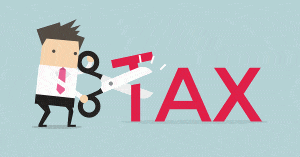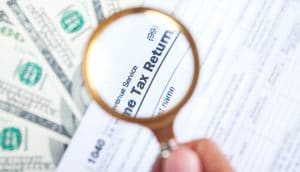What every property investor needs to know about a depreciation schedule
I recently met with Marty Sadlier and Mike Mortlock of MCG Quantity Surveyors www.mcgqs.com.au and asked them the above important question to which they answered here:-
A lot has been written about various nuances within tax legislation and construction estimating. I wanted to take a moment to get back to the basics and things that everyone should know about a depreciation schedule, so here goes.
1. What is it?
A depreciation schedule is simply a report that shows you the deductions you’re able to claim on your investment property each year, based on the decline in value of the structure and assets within (where they qualify). Depreciation is not available to your principal place of residence; the property must be income producing.
2. What is a depreciation schedule for?
Its only real job is to save you paying extra tax. The way it works is like any other tax deduction you might be familiar with.

Say you are a Doctor and you need to pay membership fees to your institute, that is normally a tax-deductible payment. Any tax deductions you claim come off your taxable income.
To put this another way, if you earn $100,000 a year and you have $10,000 worth of deductions in that year, the tax office now sees you as only earning $90,000 a year and that’s what you’re paying tax on.
3. What sort of deductions can I get?
Unfortunately, that question isn’t as easy to answer as it once was. With the depreciation rules being changed in May 2017, it depends a lot on when you purchased, whether you ever occupied the property, whether it’s new or old and several other issues. Prior to the changes we were the first depreciation company to share our average first year deduction figure which was $9,183.
4. What are the new depreciation rules?

This could get messy, but I’ll try keep it short. Essentially if you purchase after the 9th of May 2017 you can only claim plant and equipment items if you bought the property brand new, or installed those assets yourself, such as adding new carpet.
Plant and equipment items are generally the internal assets like blinds, kitchen appliances, air conditioning etc. What hasn’t changed is the division 43 deductions, which consists of the structure of the building including timber, concrete, tiling, kitchen cupboards an the like.
You can still claim those deductions as per the old rules.
5. What about qualification dates?
The property needs to have been constructed after the 16th of September 1987 to qualify for depreciation claims on the original building structure. If it’s built prior to that date, then only the renovations or improvements will attract deductions. This might be things like extensions, kitchen and bathroom renovations, painting and the like. There’s no simple rule that guarantees a report won’t be worthwhile based on the date of construction because of these renovations creating deductions. However, if the property was built after the 16th of September 1987, the report is going to be worthwhile under any normal circumstances.
6. Should I get one and how much does it cost?
Depreciation schedule costs are around the $600-$800 mark and I wouldn’t consider going any cheaper, though cheaper options are available. Any less than that range will necessarily involve corner cutting on the inspection or the time taken to fully maximise and tailor a schedule to the client. As for whether you should get one, quantity surveyors should be analysing that for you. Simply give one a call or share an online link to photos and some basic information like the age, history, purchase date and they will tell you whether the report is worthwhile. Worthwhile normally means they’ll find at least double their fee worth of deductions within the first full year of claim. Personally, if there’s no value to the client, we’ll never recommend having a schedule done.
I hope that helps to give an executive summary on what depreciation is and how it works. Depreciation is a powerful tool to help investors maximise their cashflow, minimise the holding costs associated with investing and minimise their tax.
The information provided in this article is general in nature and does not constitute personal financial advice. The information has been prepared without taking into account your personal objectives, financial situation or needs. Before acting on any information you should consider the appropriateness of the information with regard to your objectives, financial situation and needs.- Don’t buy property in a trust before reading this - February 3, 2026
- When should you refinance? Navigating RBA rate cuts and loyalty rates - January 23, 2026
- What the latest inflation data means for borrowers with the upcoming February RBA decision - January 20, 2026

